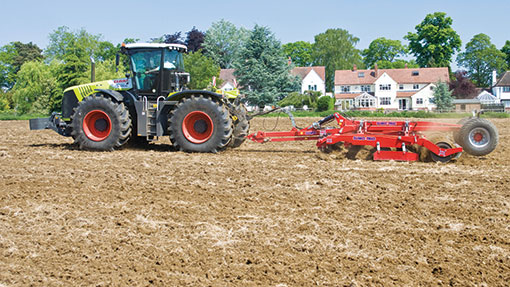Co-operative Group shocks industry over farm sale

The Co-operative has shocked the farming industry by announcing it is to pull out of agriculture and put its multimillion-pound farm business up for sale.
It has also sent a ripple of concern through farming circles over the potential impact that offloading an estimated 6,750ha (16,700 acres) of owned farmland will have on the land market.
In a statement issued on Wednesday (26 February), The Co-operative Group said: “As part of the wider strategic review of all of its businesses, The Co-operative Group has decided its farms are non-core and has started a process that is expected to lead to a sale of the business.”
Savills is advising the Co-op on its strategy for the sale of the business.
The retailer has had a farming business since 1896 and has referred to itself as Britain’s biggest farmer in the past. It currently farms more than 19,830ha (49,000 acres) through its Farmcare division. About a third of this is owned, with the remainder on let land and through contract farming arrangements.
Land agents say the impact of such a large acreage hitting the market could be significant.
See the map for the farm locations – click on the pins to see the farm details.
The UK has seen only 52,600ha (130,000 acres) or so a year on the open market in the past two years and the Co-op’s acreage will arrive in a market starved of good commercial farms. Opinion is divided as to whether this will be enough to steady or wobble prices in a market that has seen values treble in just 10 years.
The Co-op’s owned farms are in Leicestershire, Aberdeenshire, Perthshire, Yorkshire, Cambridgeshire, Gloucestershire and Herefordshire. Almost all of the land farmed by the group is arable, with wheat accounting for about 70% of output. Fruit, vegetables and potatoes are also grown and the farming interests include packhouses in Dundee and Staffordshire.
News of the proposed sale precedes publication of the group’s results in late March. The figures are likely to be the worst in its history, with speculation that losses will be anywhere up to £2bn.
Losses in the group’s banking business are thought to be the main driver of the need for cash, some of which will be provided by the sale of its farms. The bulk of the owned land is arable and at £8,000/acre would bring in £140m, in addition to the value of the other elements of the farming business.
On Wednesday (26 February), the 250 farm department employees were taking priority for the group. “The Co-operative Group would hope to transfer employment contracts to new owners,” said a spokeswoman. “Where this isn’t possible, colleagues will receive our full support in applying for or retraining for new roles.”
Phil Hudson, NFU head of food and farming, said there was surprise and disappointment at the news given the Co-op business had a long association with farms.
“We spoke to them when we heard the news and the key thing we wanted to ensure is that this wouldn’t have any impact on Co-op retail’s commitment to sourcing British food and the money invested in that over the past couple of years.
“Arguably, the Co-op will have to work even harder to show its commitment to British farming without the ability to say it has its own farms. We’ve received those assurances that the direction of travel which the Co-op is committed to will continue in terms of sourcing British food from British farmers.”
